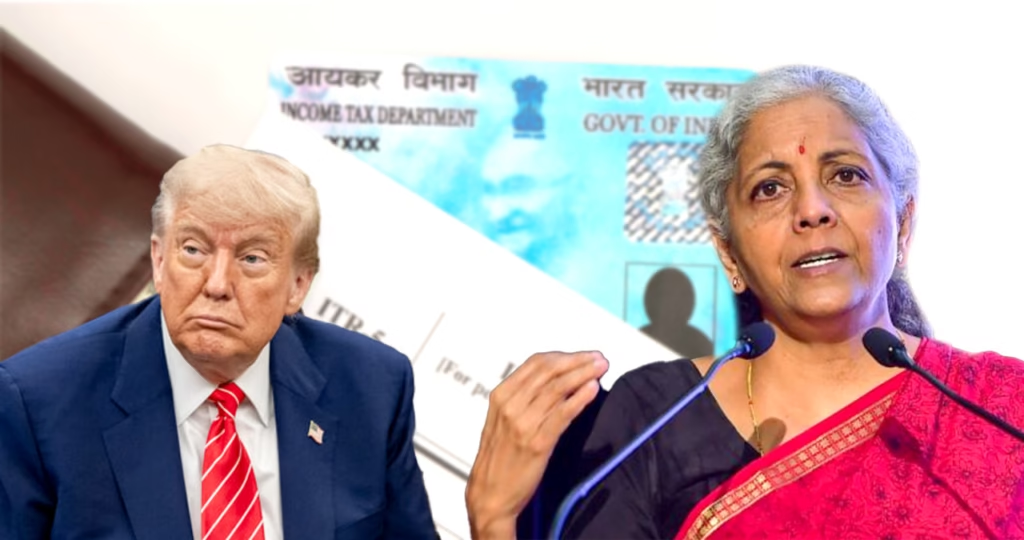The sudden withdrawal of the Income Tax Bill 2025 from the Lok Sabha has sparked a wave of speculation in political and economic circles.

The Income Tax Bill, 2025, was initially introduced on February 13, 2025, with the purpose of replacing the Income Tax Act of 1961, with a modern tax rules. While the official explanation is very clear that It was withdrawn by the government on August 8, 2025 and A revised draft of the bill is scheduled to be introduced on August 11, 2025. but the timing has raised questions about whether international trade factors or including ongoing talks over US tariffs, may or might no be have played an unspoken role.
Finance Minister Shrimati Nirmala Sitharaman stated that the withdrawal was necessary to avoid confusion caused by multiple versions of the legislation. A revised draft of Income Tax Bill 2025, updated with the recommendations of the Parliamentary Select Committee, is scheduled to be introduced in Parliament on August 11, 2025.
The Parliamentary Select Committee, chaired by BJP leader Shri Baijayant Panda, has worked extensively to refine the income tax bill 2025. According to Mr. Panda, the updated Income Tax Bill 2025 will cut the complexity of India’s tax framework by nearly half, reduce legal disputes, and make compliance easier for both individual taxpayers and Micro, Small and Medium Enterprises (MSMEs). He noted that the current Income Tax Act, 1961 has been amended more than 4,000 times and now contains over five lakh words, making it challenging for the average taxpayer to understand. The new bill is intended to be far more readable and user-friendly to common people.
One of the key focuses of the legislation is relief for the middle class and small businesses. The government has made it clear that there will be no additional direct tax burden on working and middle class citizens of India. For MSMEs, which often struggle with compliance due to limited resources, the new bill promises a more transparent and manageable in the system.
The revised bill is anticipated to include some of the modifications already made by the Finance Act 2025. These include increasing the maximum rebate amount from ₹25,000 to ₹60,000, extending marginal relief for incomes marginally above ₹12 lakh, and raising the tax rebate threshold under Section 87A for residents under the new tax regime from ₹7 lakh to ₹12 lakh. These changes may encourage investments, raise savings, and increase household consumption.
Despite the government’s official reasoning, May be the global economic factors could be a one of the reason behind the income tax bill 2025 withdrawal. As India engaged in sensitive negotiations over US tariffs. While no official link has been confirmed, the close timing between the bill’s withdrawal and tariff talks has led to speculation that the move could be a strategic decision to avoid disrupting trade relations. so there is no clinical evidence to prove that the bill wirthdral is for US trade tariff.
 Trump Tower Kolkata at Risk? India-US Tarrif Attack 2025. →
Trump Tower Kolkata at Risk? India-US Tarrif Attack 2025. →For decades, taxpayers in India have struggled with a complex and heavily amended tax rules. The Income Tax Bill 2025 represents an opportunity to modernize and simplify the system, aligning it with the needs of a world’s 4th largest economy. Whether its temporary withdrawal is purely a matter of legislative process or part of a broader diplomatic strategy, the reintroduction of the bill on August 11 will be closely watched, both in New Delhi and in world economic circles.
Also Read: Trump Tower Kolkata at Risk? India-US Tarrif Attack 2025.
 Prashant Pitti CEO of EaseMyTrip, aims to establish Indian supremacy across Asia in 2025. →
Prashant Pitti CEO of EaseMyTrip, aims to establish Indian supremacy across Asia in 2025. → Malda Mango: Exploring the Best-Known ‘Aam’ of Bengal in 2025 →
Malda Mango: Exploring the Best-Known ‘Aam’ of Bengal in 2025 →





